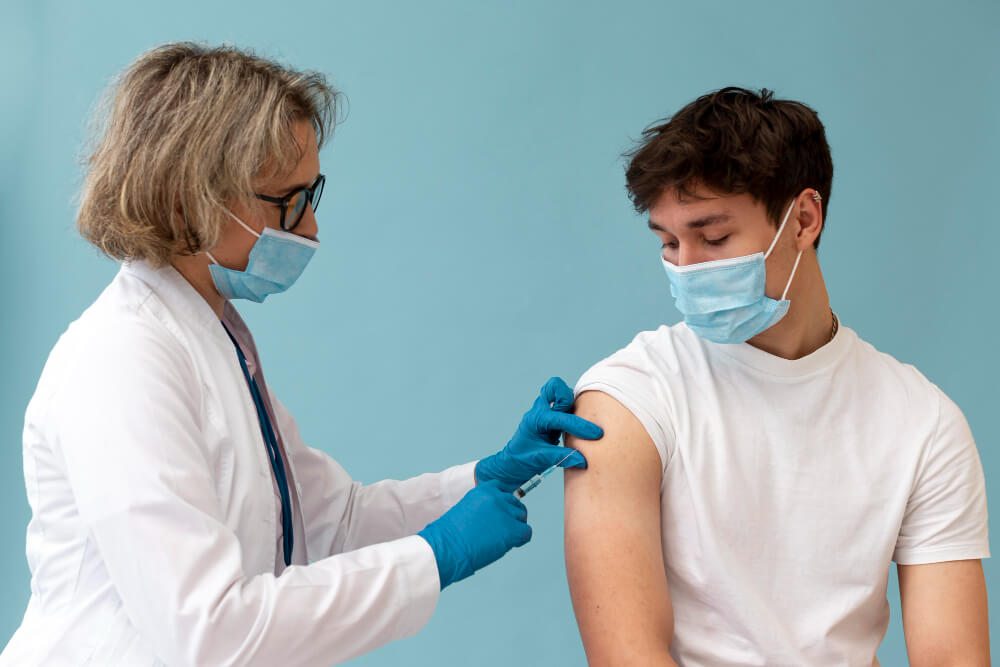Vaccination for STIs: A Powerful Tool for Prevention
Sexually transmitted infections (STIs) are a significant public health concern worldwide. While condoms and other safe sex practices are essential for preventing STIs, vaccination offers an additional layer of protection. Vaccines can help reduce the prevalence of certain STIs and prevent their associated health complications.

Available STI Vaccines
Currently, there are vaccines available for two STIs: human papillomavirus (HPV) and hepatitis B virus (HBV).
HPV Vaccine The HPV vaccine is recommended for both males and females to protect against HPV, a virus that can cause cervical, anal, penile, and oropharyngeal cancers, as well as genital warts.
HPV Vaccine Types There are several HPV vaccines available, including:
- Gardasil 9: Protects against nine HPV types
- Cervarix: Protects against four HPV types
When to Get Vaccinated The HPV vaccine is typically recommended for adolescents and young adults aged 9-26.
HBV Vaccine The HBV vaccine is recommended for all infants and adolescents who have not been vaccinated previously. It can also be given to adults who are at high risk for HBV infection.
HBV Vaccine Types There are several HBV vaccines available, including:
- Recombivax HB
- Engerix-B
When to Get Vaccinated The HBV vaccine is typically administered in a series of three injections over six months.
Benefits of STI Vaccination
Vaccination for STIs offers numerous benefits, including:
- Prevention of Infection Vaccines can significantly reduce the risk of contracting STIs.
- Protection Against Cancer The HPV vaccine can help prevent cervical, anal, penile, and oropharyngeal cancers.
- Long-Term Protection Vaccines can provide long-lasting protection against STIs.
- Reduced Healthcare Costs Preventing STIs can help reduce healthcare costs associated with treatment and complications.
- Improved Public Health Widespread vaccination can help reduce the prevalence of STIs in the community.
Who Should Get Vaccinated?

The Centers for Disease Control and Prevention (CDC) recommends that everyone eligible for STI vaccines should get vaccinated. This includes:
- Adolescents and Young Adults Individuals aged 9-26 should get vaccinated against HPV.
- Infants and Adolescents Infants and adolescents should get vaccinated against HBV.
- Adults at High Risk Adults at high risk for STIs, such as those who are sexually active with multiple partners or who have other risk factors, should consider vaccination.
Addressing Vaccine Concerns
Some people may have concerns about getting vaccinated for STIs. It is important to address these concerns and provide accurate information about the safety and effectiveness of these vaccines.
- Safety of Vaccines STI vaccines have undergone rigorous testing and are considered safe for most people.
- Myths and Misconceptions Addressing common misconceptions about STI vaccines.
- Side Effects Discussing potential side effects of STI vaccines and how to manage them.
Access to STI Vaccines
Access to STI vaccines can vary depending on location and socioeconomic factors. It is important to work with your healthcare provider to determine if you are eligible for vaccination and to find a vaccination clinic in your area.
- Insurance Coverage Many health insurance plans cover the cost of STI vaccines.
- Public Health Programs Public health programs may offer free or low-cost STI vaccines.
- Healthcare Provider Recommendations Your healthcare provider can recommend a vaccination clinic in your area.
Vaccination is a powerful tool for preventing the spread of STIs and protecting your sexual health. By getting vaccinated and practicing safe sex, you can reduce your risk of contracting STIs and enjoy a healthy sexual life.
Schedule an appointment with our Sexual health clinic’s vaccination services to prevent STIs (469) 981-0529 Or visit us https://tscmlk.com/
